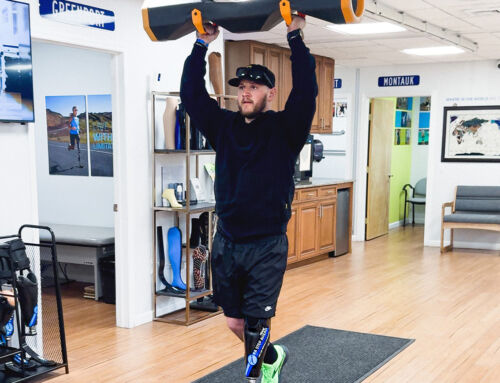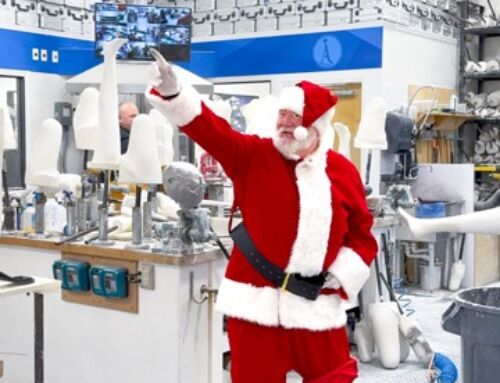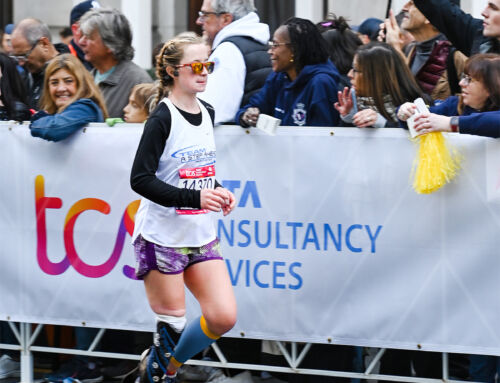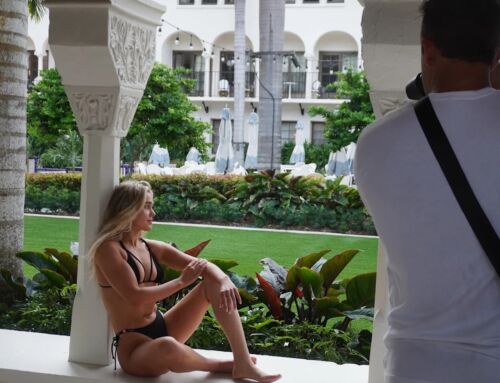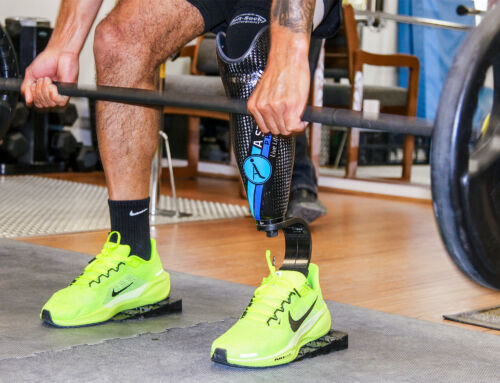Going to Camp
“I thought I was going to camp to help teach campers not to worry about their differences and how to live their lives to the fullest despite their disabilities,” explains Sam Rossiello about his recent experience as a first‐time counselor at the Amputee Coalition Paddy Rossbach Youth Camp. But, as the 25‐year‐old recent amputee reflects on his camping experience, he shares, “I was wrong.”
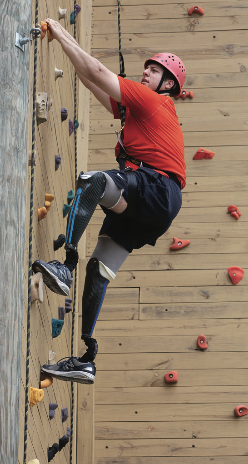 “My friends Alexandra and Bryanna, who had volunteered at the camp for years and were campers, thought it would be good for me to go and to meet some new people who, I would say, are similarly different, just like me,” says Rossiello, of New York City. “I was extremely nervous. I knew everyone at camp had their own disabilities, but I didn’t know what they’d think of mine,” he adds.
“My friends Alexandra and Bryanna, who had volunteered at the camp for years and were campers, thought it would be good for me to go and to meet some new people who, I would say, are similarly different, just like me,” says Rossiello, of New York City. “I was extremely nervous. I knew everyone at camp had their own disabilities, but I didn’t know what they’d think of mine,” he adds.
So, for six days in early June, Rossiello was a counselor for 12‐ and 13‐year‐old boys, who, like him, had limb loss and limb differences.
Recovery & Renewal
Rossiello became a bilateral below-knee amputee two winters ago after a bizarre accident when he was living in Washington, D.C. After a long day of work, he somehow lost his footing on the Metro platform and fell onto the tracks as an oncoming train was pulling in. He nearly died – doctors were able to save both knees but the lower part of his legs was too badly injured. When he left the hospital 10 weeks later, Rossiello vowed to get back to the physical shape he was in before the accident. In June 2016, that journey began when he was fitted for prostheses. Rossiello, a technology consultant at Deloitte, explains that a turning point for him was four months later when he ran with his new prosthetic legs for the first time in a 5K race. What made the experience even more poignant was that Dr. Libby Schroeder, the surgeon who saved his life, and his medical team from D.C. traveled to New York City to run alongside him. I have become much less judgmental of the unique qualities of people.
Rossiello says the race was a big part of his recovery, but that wasn’t all: “After the accident, I was diagnosed with severe anxiety and depression. For four months the summer after my accident, I spent every single day in therapy because I needed to climb a mountain. To a lesser extent, and sporadically, I still suffer from it.”Rossiello says he’s proud of where he’s been and who he is today: “I have become much less judgmental of the unique qualities of people. I have learned to take everyone I meet as they are and accept their differences as their own unique advantages and abilities that help them contribute to the world. I have also become way more accepting of my own situation. At first, I was scared to wear shorts in public for fear of being pointed at, stared at, or laughed at. Once I started wearing shorts, I realized that people are not laughing at me – they are amazed by me and what I can do.”And, going to camp, he explains, made him even braver.
Learning Moments
Rossiello recalls, “When I first stepped off the bus at camp, I knew I would be trying activities that would test my physical capabilities, like hiking, rock climbing, swimming, Capture the Flag, and many other team‐building activities – many that I had not done since my accident. I had convinced myself to put on a ‘veil of courage’ to ensure that my campers did not have a reason to be scared of any of the activities that we’d be participating in.”
“One afternoon at the pool,” Rossiello says, “the kids and some of the counselors were encouraging me to come into the water and cool off. I was scared to take off my legs in public for fear of feeling ‘naked’ and for fear of not being able to swim very well, or at all, without legs. I was frightened of failure. At the same time, I thought it was really cool that the campers saw my fear and wanted to help me get over it. They convinced me and I gave it a shot.”
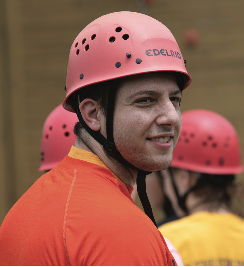 This incident, explains Rossiello, taught him a “valuable lesson”: “No matter who you are at camp, you can always open your eyes to the way others live and learn new ways that can help you approach different, potentially scary, situations. It was also good to see that campers and counselors with different body types and disabilities were more worried about cooling off on a hot day. No matter who you are at camp, you can always open your eyes to the way others live and learn new ways that can help you approach different, potentially scary, situations than worrying about what other people thought of them.”
This incident, explains Rossiello, taught him a “valuable lesson”: “No matter who you are at camp, you can always open your eyes to the way others live and learn new ways that can help you approach different, potentially scary, situations. It was also good to see that campers and counselors with different body types and disabilities were more worried about cooling off on a hot day. No matter who you are at camp, you can always open your eyes to the way others live and learn new ways that can help you approach different, potentially scary, situations than worrying about what other people thought of them.”
Rossiello says he will definitely go back to camp next year: “Camp has given me a large network of amputees to bounce questions and ideas off of. And if I am ever feeling down or frustrated with my disability, I know that there are a ton of other people dealing with similar issues who are eager to help me when I need it, or I can help them when they need it.”
